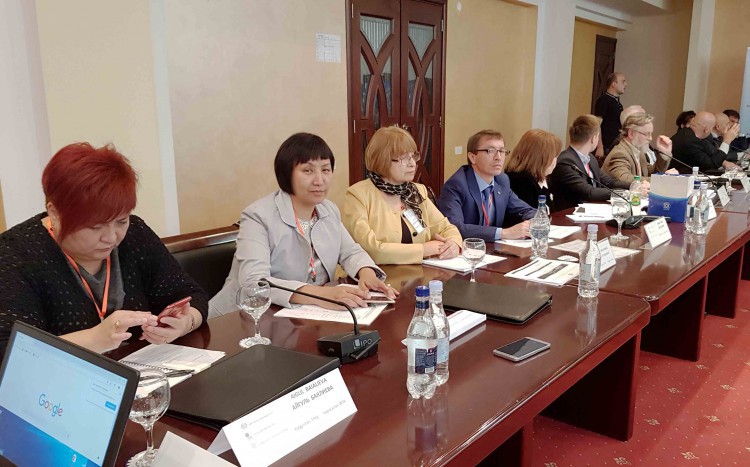Trade unionists from Eastern Europe and Middle Asia have deepened their knowledge in the field of payroll policies
Trade unionists from Eastern Europe and Middle Asia, socio-economic specialists, met in Aghveran, Armenia, on 16-17 October, at an international training seminar to address various payroll issues, international standards in the field of wage formation in participating countries, wage trends at international level.
Trainees were trained by trainers from the European Institute of Trade Unions, the International Labour Organization (ILO) and the International Trade Union Confederation (ITUC).
Representatives of the National Trade Union Confederation of Moldova (CNSM), Sergiu Iurcu, head of the social-economic Department within CNSM, and Ana Moldovanu, senior consultant within the same department, informed the participants about the recent changes in the wage field implemented in the Republic Moldova, the results registered by the social partners in this direction and the problems that need to be solved in the next period.
Thus, the Moldovan trade unionists have communicated about the salary increases that have taken place but which do not yet ensure a decent living, about the legislative changes that have improved the situation in the field of real sector wages, as well as about the necessity to increase the minimum wage on the country and the establishment of a unique minimum salary.
Also, the representatives of the Confederation informed about the process of drafting the new law on unitary remuneration in the budgetary sector and the requirements of the trade unions against this law. At the same time, they have had the opportunity to learn about the experience of other countries in the field of wage formation.
Those present have decided to organize a regional campaign to communicate about wage issues and make joint efforts to address them.
The Armenian meeting is part of a comprehensive training project aimed at strengthening the capacities of trade unions in Eastern Europe and Middle Asia, implemented by ITUC, with the support of the ILO and the Swedish Union to Union project.
Department of mass media and international relations of CNSM



